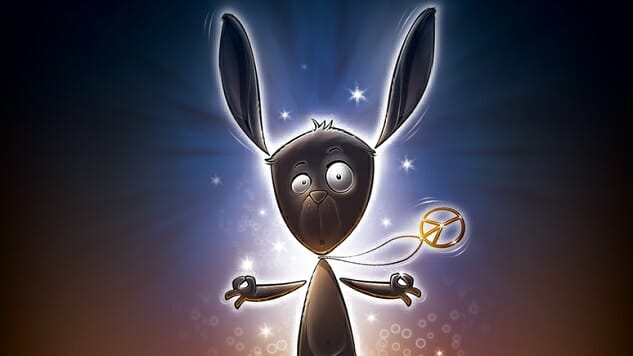The Mind Straddles the Line Between Strategy Games and Party Games

The Mind is certainly the strangest game I’ve played this year, and probably the one most likely to have you and your partners laughing while you play it, even though the game’s most fundamental rule is that you can’t talk to the other people playing with you. It’s disarmingly simple, yet very difficult to beat, especially if you’re playing with people you don’t know that well or with whom you haven’t played games before. It’s one of three games from Wolfgang Warsch to earn nominations in this year’s Spiel des Jahres competitions—there are only six nominations total, so he got half of them, winning the Kennerspiel for The Quacks of Quedlinburg—and regardless of whether you like it, you’ll probably have a very strong opinion on it when you’re done playing.
The game couldn’t be quicker to learn. Two to four players work together to play cards dealt randomly from the numbered deck, with one card each from 1 to 100, to each player. In any given round, each player receives a hand of cards equal to the round number. All players must then play their hand cards to the table in ascending order to create a single stack for everyone—that is, if I have the 12 card, and you have the 13, I must play the 12 before you play the 13 or we lose that round. The catch, as I mentioned above, is that you can’t communicate with other players at all—no talking, no hand signals, nothing. It’s all a question of timing, and knowing, or guessing, how long to wait before playing your next card to the table.
The game lasts a fixed number of rounds tied to the number of players—eight rounds for a 4-player game, ten for a 3-player game, and twelve for a 2-player game. You do get a few cards to help you for the inevitable stumble, including an extra life (the cards with the rabbit shown on the box cover), and a throwing star. If you still have a throwing star available, any one player can raise his/her hand to indicate that the player would like to use it. If all other players agree by raising their hands, then every player discards their lowest numbered card to the table at the same time, after which play continues as normal. You can obtain additional throwing stars or lives (rabbits!) by completing certain rounds as you progress.
-

-

-

-

-

-

-

-

-

-

-

-

-

-

-

-

-

-

-

-

-

-

-

-

-

-

-

-

-

-

-

-

-

-

-

-

-

-

-

-









































